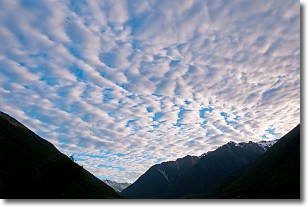Weather Alert in Michigan
Air Quality Alert issued July 31 at 4:12PM EDT by NWS Northern Indiana
AREAS AFFECTED: Cass; St. Joseph; Branch; Hillsdale; Northern Berrien; Southern Berrien
DESCRIPTION: The Michigan Department of Environment, Great Lakes, and Energy (EGLE) has issued an Air Quality Advisory for elevated levels of fine particulate (PM2.5) across the state of Michigan. Pollutants across the state are expected to be in the Unhealthy for Sensitive Groups (USG, Orange AQI) range with some locations reaching the Unhealthy (Red AQI) range. The Air Quality Advisory includes all Michigan counties. Smoke from Canadian wildfires remains over the state Thursday, with PM2.5 concentrations ranging from USG to Unhealthy. Some locations, mostly in the Lower Peninsula, may experience improvements in air quality from late Thursday into Friday, however, that is expected to be short-lived as additional smoke plumes drop into the region. High pressure settling overhead will limit dispersion and keep smoke at the surface through the end of the week. This sustains the threat of increased PM2.5 and readings in the USG range will continue through Saturday, with some locations reaching the Unhealthy range. It is recommended that, when possible, you avoid strenuous outdoor activities, especially those with heart disease and respiratory diseases like asthma. Monitor for symptoms such as wheezing, coughing, chest tightness, dizziness, or burning in nose, throat, and eyes. Reduce or eliminate activities that contribute to air pollution, such as: * outdoor burning, * use of residential wood burning devices. Tips for households: Keep windows closed overnight to prevent smoke from getting indoors and, if possible, run central air conditioning with MERV-13 or higher rated filters. For up-to-date air quality data for Michigan visit the MiAir site: https://air-egle.hub.arcgis.com/ For up-to-date air quality data nationally visit EPA's Air Now site: https://www.airnow.gov/ For further health information, please see MDHHS's Wildfire Smoke and You Health site: https://www.michigan.gov/mdhhs/safety-injury-prev/environmental- health/your-health-and-wildfire-smoke
INSTRUCTION: N/A
Want more detail? Get the Complete 7 Day and Night Detailed Forecast!
Current U.S. National Radar--Current
The Current National Weather Radar is shown below with a UTC Time (subtract 5 hours from UTC to get Eastern Time).

National Weather Forecast--Current
The Current National Weather Forecast and National Weather Map are shown below.

National Weather Forecast for Tomorrow
Tomorrow National Weather Forecast and Tomorrow National Weather Map are show below.

North America Water Vapor (Moisture)
This map shows recent moisture content over North America. Bright and colored areas show high moisture (ie, clouds); brown indicates very little moisture present; black indicates no moisture.

Weather Topic: What is Snow?
Home - Education - Precipitation - Snow
 Next Topic: Stratocumulus Clouds
Next Topic: Stratocumulus Clouds
Snow is precipitation taking the form of ice crystals. Each ice crystal, or snowflake,
has unique characteristics, but all of them grow in a hexagonal structure.
Snowfall can last for sustained periods of time and result in significant buildup
of snow on the ground.
On the earth's surface, snow starts out light and powdery, but as it begins to melt
it tends to become more granular, producing small bits of ice which have the consistency of
sand. After several cycles of melting and freezing, snow can become very dense
and ice-like, commonly known as snow pack.
Next Topic: Stratocumulus Clouds
Weather Topic: What are Stratus Clouds?
Home - Education - Cloud Types - Stratus Clouds
 Next Topic: Wall Clouds
Next Topic: Wall Clouds
Stratus clouds are similar to altostratus clouds, but form at a
lower altitude and are identified by their fog-like appearance, lacking the
distinguishing features of most clouds.
Stratus clouds are wider than most clouds, and their base has a smooth, uniform
look which is lighter in color than a nimbostratus cloud.
The presence of a stratus cloud indicates the possibility of minor precipitation,
such as drizzle, but heavier precipitation does not typically arrive in the form
of a stratus cloud.
Next Topic: Wall Clouds
Current conditions powered by WeatherAPI.com




